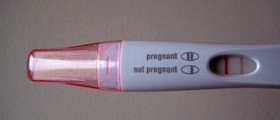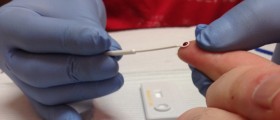Loading...
Loading...
Loading...
I was diagnosed with chlamydia 3 years ago. I had no symptoms until the chlamydia bacteria had migrated into my prostate gland, which took about 7 months after my initial exposure. Once that happened, my symptoms were pain and swelling in the prostate, which is very uncomfortable. My doctor first thought it was just common prostatitis and prescribed cipro which I took twice a day for two weeks. It seemed to take the prostate pain and swelling away for a couple of days but then those symptoms quickly returned while I was still taking the drug. The woman I got it from then called me to tell me she had been diagnosed with chlamydia after having a normal exam in connection with getting her birth control prescription, so I went back to the doctor and he prescribed doxicycline twice a day for 2 weeks. No improvement, it didn't seem to be working and I tested positive after those two weeks, so he prescribed azithromycin 500 mg twice a day for another two weeks. No improvement, That didn't seem to work, either, and I retested positive again. He decided to leave me on the azithromycin and finally after about another 5 weeks I tested negative, but the symptoms (pain and intermittent swollen prostate) continued for another month. Moral of the story is that every guy who is sexually active should get tested every 3 months -- you don't want to wait until it gets into your prostate which, from my experience, takes about 7 months from initial exposure. So finding out before that happens will enable you to cure it much quicker and avoid the problems that arise when it gets into your prostate. By the way, while I was suffering with this I came across many articles that said that once chlamydia gets into the prostate it cannot be cured with just the pills -- you need to get an injection into or around the prostate, since the blood supply in the prostate is too weak to deliver the amount of antibiotic needed to kill the bacteria. That was not my experienced, as the azithromycin pills finally killed it, but just be warned -- best to get tested and treatment before the bacteria gets into the prostate.
